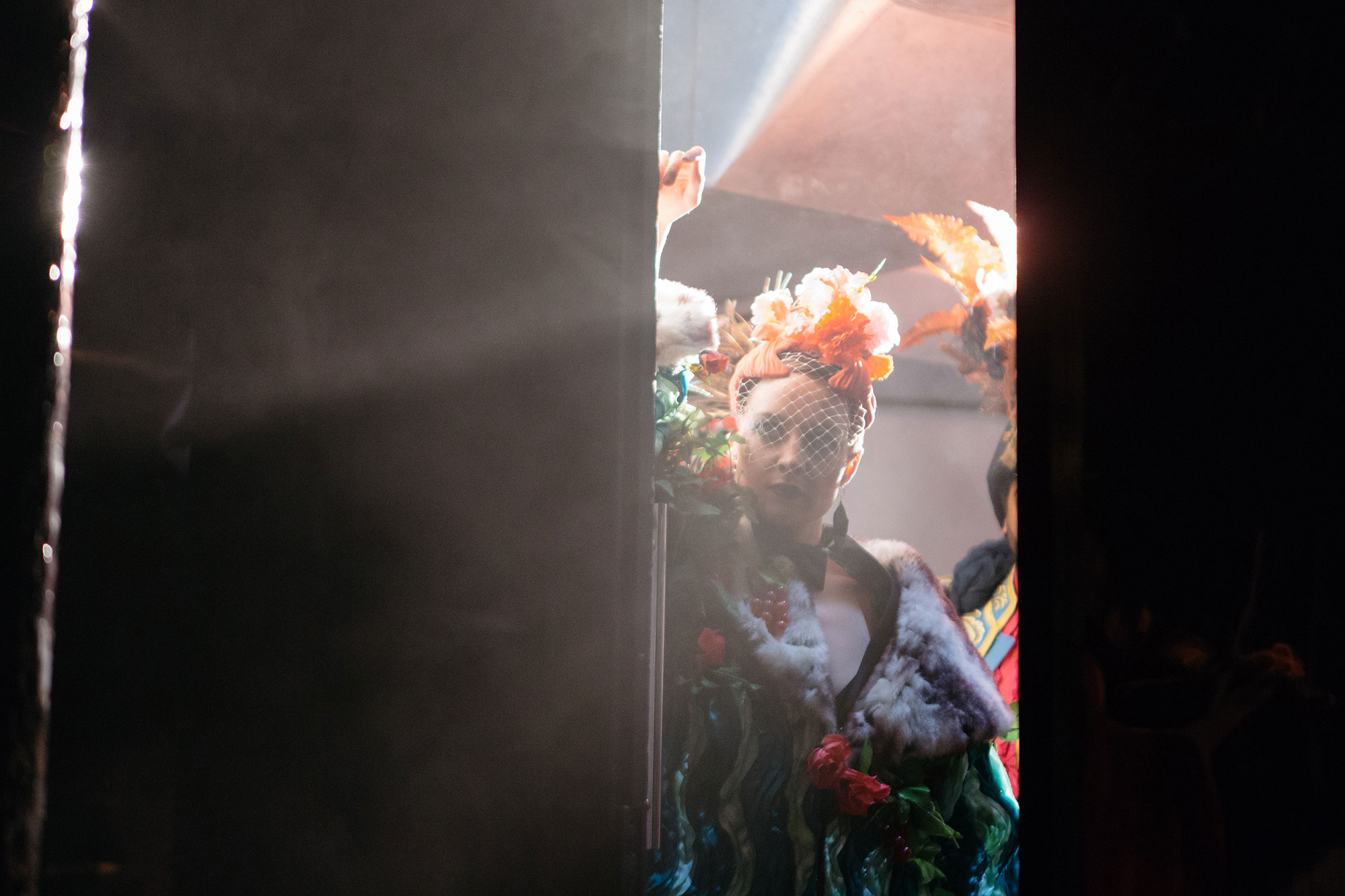‘You must have been quite an odd duck as a boy,’ I said to Barry Humphries, as the entertainer described his unusual devotion to Berlin cabaret artists, fostered in stuffy suburban Melbourne. ‘Yes, I was,’ he replied. He gave me a look. ‘I expect you were too.’
Guilty as charged: part of my duckery was also an interest in the sauce and swoon of Weimar performance – from Cabaret to Brecht/Weill to Ute Lemper: mission complete. The songs and the stories that surround them – about Weill, Dietrich and less familiar names – are hospitable to anyone piecing together an identity on the edges. For a Jewish gayboy, they might help you feel seen, and seen by a tantalising past.
I spent Saturday night with some of these songs at the Gate Theatre’s Effigies of Wickedness. It’s a great title. Maybe a cheeky twitter biography. You’d lay claim to the description just as you might embrace snark directed at you, to de-fang the offense or display your winning self-deprecation.
It’s also the phrase used by the Nazi censors of ‘degenerate’ music, including cabaret songs and their liberal attitudes, jazzy inflections, flouts to sexual and racial purity. The tiny Gate Theatre – the smallest space with the biggest ambition in London – becomes a dark, mirror-walled cabaret cupboard (designed by Ellan Parry) for a four-piece band, two big-voice opera singers (Peter Brathwaite, who initiated the project, and Katie Bray) and two big-personality fringe stars (Lucy McCormick and Le Gateau Chocolat). Some of them might even be odd ducks. In our faces, occasionally in our laps, they sashay chronologically through songs about queer doings, dissent and defiance, amid a welter of prop-box exuberance in Ellen McDougall’s smart production.
Later this summer, Barry Humphries’ Weimar Cabaret will play the Barbican, featuring cabaret star Meow Meow. He, like Effigies, suggests the audience needs context – both shows explain the background to what you hear. However much they advocate for neglected music, both also sense the songs are historical documents. They argue that history matters – that we should learn from the past, that it parallels our present. As Humphries told me: ‘we’re living again in an age of anxiety. Big time.’
Reverse engineering
Pleasure as well as anxiety heightens the ambiguity of this material. Hollaender, Weill and Spolinasky play double-edged games – in songs like I am a Vamp or A Little Yearning you first register the jaunty or lilting melody, then the barbed lyrics. Maddy Costa riffs rewardingly on a series of questions in her Effigies review – principally, ‘what exactly is it trying to achieve as a piece of theatre?’ Good questions, and needling responses: but I was left scratching at another one – what did, or could, this material do in the world? How much do we need to know about how the work was originally received, and how much can we want it replicate that reaction?
And who could reverse engineer a theatrical event’s original impact? Audiences aren’t monolithic, so different Berlin spectators would have been shocked or seduced, titillated or tripped into reflection. We might detect flurries of unease even in the earlier songs here – but also the excitement of singing in public what would once have been secret or shameful.
I’m a scaredy kitten in stage interaction, but even I didn’t flinch when Le Gateau Chocolat’s gold lame number landed on my lap during the first casual costume change. No one purrs a bass note, works a frock, beard or glitter-freighted eyelash with such molten style as Le Gateau Chocolat – he has moved from burlesque treats like La Soirée to singing Mack the Knife at the National Theatre or We Are Family at the Globe (where Meow Meow has also appeared). So what’s to be scared of? Lucy McCormick’s ‘cabaret interactions’ edged into personal space (a hug, some help with a zip), but mostly turned the discomfort on herself. These performers might embarrass, but they’re not trying to shock.
Anyhow, why let someone else’s definition of wickedness, or at least provocation, be your starting point? The Berlin cabaret songs retain potency through musical sophistication and theatrical spark – the misfiring aspirations of Sex Appeal, the exuberant Life’s A Swindle, or the lulling melancholy of The Munchausen Song, which deflates idealism in a regretful chorus of ‘liar, liar, liar’. McDougall stages an inexorable mock curtain call, the cast bowing on and on, as laughter and applause die on our hands and lips. The woman in front of us chirruped ‘this is funny,’ and clapped and cackled on alone, making the whole thing even chillier. And the evening finally ended with a desolate reprise of Spoliansky’s 1921 anthem of queer identity – ‘we are the buds that grow a little different.’ What first was brandished, now is branded. It might be fun to claim a description like effigies of wickedness – but as the Gate team showed, it’s more likely that the label will be pinned on you.
Photo above by Helen Murray
Follow David on Twitter: @mrdavidjays


Leave a Reply